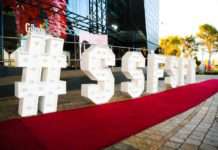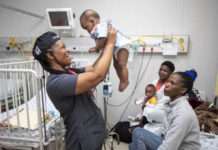Literacy levels in South Africa are declining – and costs the economy upwards of R119 billion each year as 3 million people struggle to read, write and do basic maths, according to the
World Literacy Foundation. The foundation’s Economic Cost and Social Impact of Illiteracy report revealed that 4.7% of South Africans have low-level literacy skills – and the cause is rooted in ECD.
The GroundUp 2023 Reading Panel Background Report shows that 81% of Grade 4 learners cannot read for meaning – up from 78% in 2016, marking the first decline in literacy since 2006 when South Africa was included in the study for the first time. The report also found that about 60% of children have not learned most of the letters of the alphabet by the end of Grade 1 and more than 30% still don’t know them by the end of Grade 2. The report concluded that children in this position are “perpetually behind and in ‘catch-up’ mode, although they never actually catch up”.
International Literacy Day has been celebrated on 8 September every year since it was established by UNESCO in 1967 to remind the public of the importance of literacy as a matter of dignity and human rights and to advance the literacy agenda towards a more literate and sustainable society – clearly an important focus for South Africa in the face of our challenges. We’re not alone, though – in 2020, at least 763 million young people and adults lacked basic literacy skills
Many organisations and schools in South Africa are working hard to improve literacy levels by providing access to books in all the country’s languages and inspiring a culture of reading – and Biblionef SA is one of the longest-standing organisations making a huge difference. Since it was established in 1998 by a former Dutch Ambassador, Biblionef has donated over 2 million books and currently works with over 600 organisations, reaching over 20 000 children a year. They acquire books by purchasing titles from publishers and booksellers at a discounted price, receiving book donations from publishers and booksellers and commissioning the publishing and reprinting of appropriate titles – with their efforts supported by, amongst other sources of funding, swipes by MySchool MyVillage MyPlanet supporters and a 3-year targeted partnership with the organisation.
“South Africa faces many challenges to literacy, including socio-economic disparities, inadequate access to quality education and language barriers,” says Sunitha Amod, General Manager: Biblionef South Africa. “Imagine growing up without access to storybooks in your home language – that’s the case in many of the organisations we serve, where children have never had or held a book that reflects their daily lives or surroundings. They’ve never seen words or phrases on paper in their home language. By giving them the gift of a book that means something to them, we hope to inspire a lifelong love for reading – a gift they’ll cherish forever.
The children that Bibilionef SA reaches rarely have the privilege of access to digital devices to read on. “While many own digital devices, the cost of data makes it unfeasible to maintain as a mode of reading. There is plenty of digital content available, but as we saw during COVID when we tried to move online, access to affordable data prevented many teachers and learners from accessing the content,” says Amod.
Amod says that enthusiasm for reading grows when children know that reading is a natural and enjoyable part of daily lives. “Adults need to demonstrate reading behaviour regularly – whether it’s books, magazines or digital content, it demonstrates to children that reading is valuable and enjoyable. Engaging in regular ‘read-aloud’ sessions with children, using age-appropriate books and stories that capture their imagination creates enthusiasm”.
Biblionef SA aims to secure enough funding to ensure that every under-resourced school in South Africa is able to offer access to home language and English language books with relevant images and content that children can relate to. “We’re proud to say that when we started this journey 25 years ago, there were, for example, 9 Tshivenda-language book titles available for children and now there are over 100,” says Amod.
MySchool MyVillage MyPlanet and Biblionef SA also partnered on a 3-year program to support 10 Primary Schools from KwaZulu-Natal, providing them with high-quality home language storybooks, English storybooks and non-fiction books. The partnership also provided Foundation Phase teachers with essential workshops and in-class coaching and mentoring sessions, with the focus on how to incorporate storybooks into the CAPS curriculum easily. 60 teachers participated in the project each year – two teachers from Grades 1-3 were selected from each school, with the indirect impact being improved access to books and a new way of exploring the curriculum for 2 400 learners.
MySchool MyVillage MyPlanet General Manager Pieter Twine says that organisations like Biblionef SA provide a crucial function in society, as so many of the organisations 8 500+ beneficiaries do. “The amount of good done by organisations like Biblionef SA is hard to quantify, because it’s simultaneously such a massive help in an environment where so many people are in need, but it’s also just a sliver of the help the people of South Africa need overall. We work hard to help fund ECDs and support organisations looking to help make a genuine difference in their communities and the country as a whole and we want our supporters to know that every swipe of their cards genuinely counts,” he says.












